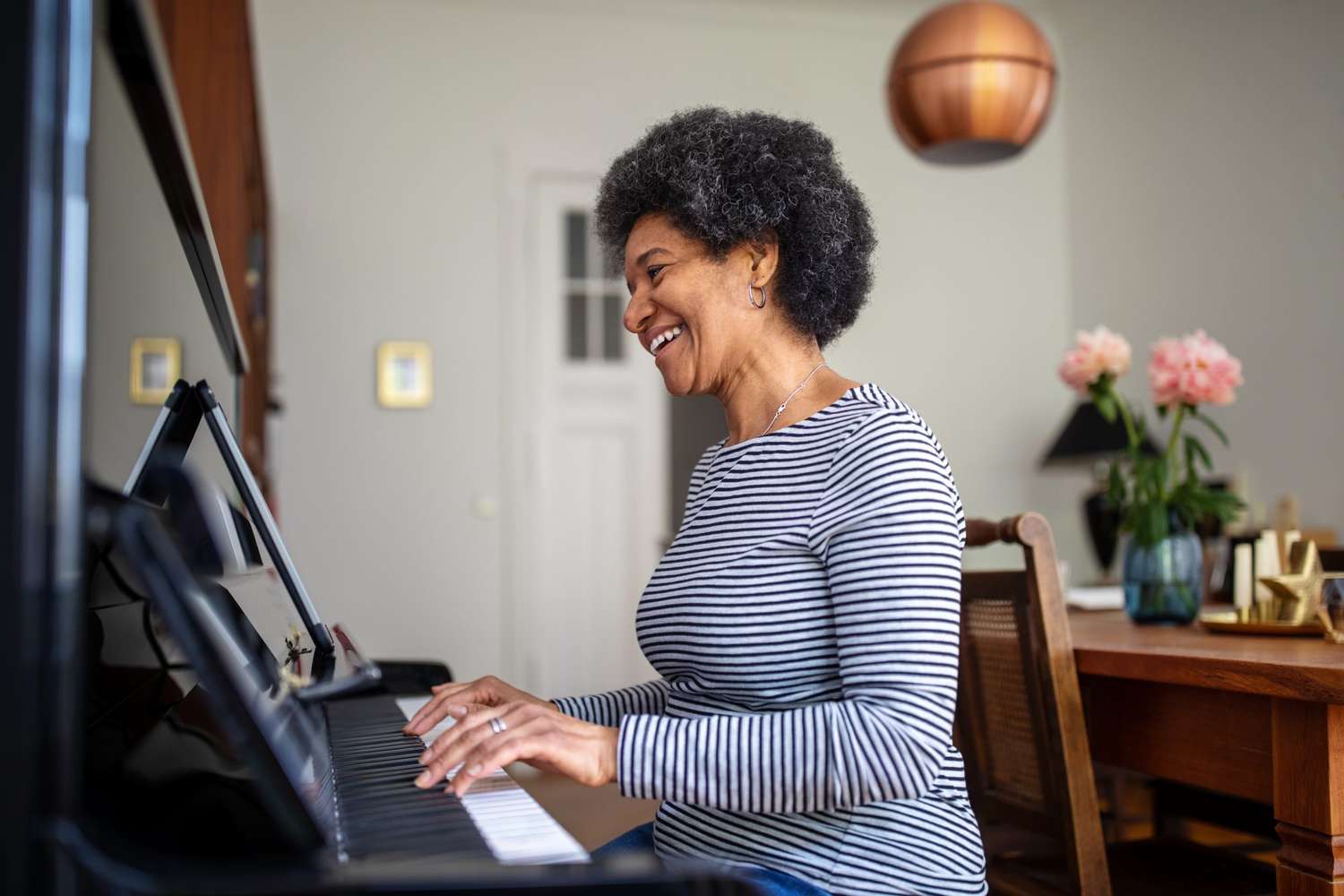Listening to your favorite songs can easily boost your mood, but that's not the only benefit associated with enjoying music. According to new findings published in the Journal of the American Geriatrics Society, researchers found that music is extremely important to brain health. At the end of their study, a team of University of Pittsburgh researchers found that in patients with early signs of Alzheimer's or who had mild cognitive impairment (MCI), music enhanced brain function.
 Credit: Luis Alvarez / Getty Images
Credit: Luis Alvarez / Getty Images
"We are excited to see these results," Jennie Dorris, a rehabilitation scientist at the University of Pittsburgh and lead study author, said in a statement to SWNS. "Participating in music, like singing in a choir or playing in a drum circle, is a safe, engaging activity. Our research demonstrates it can support cognition at a critical time for older adults facing cognitive decline."
Related: Spending Time with Friends Could Reduce Your Risk of Dementia—Here's Why
Dorris explained that using music as a cognitive therapy tool can help mental, emotional, and social well-being for people worldwide who experience dementia-related symptoms, like forgetting recent activities, getting distracted, or having trouble with problem-solving. As part of the study, the research team gathered data from nine volunteer trials, which equaled 500 participants with dementia or MCI. The groups went through mental assessments before and after going through their testing, which included singing and playing musical instruments. "Music had a significant effect on cognitive functioning for older adults with probable MCI or dementia," Dorris explained. The therapy practices for the participants, who were in their 60s, 70s, and 80s, lasted between 30 minutes to two hours. The volunteers went to the sessions between one to five times a week for the musical therapy along with testing for anxiety and depression.
"The results showed the cognitive functioning scores of older adults with probable MCI or dementia who participated in active music-making were statistically significantly different than those who did not," Dorris said. "This analysis demonstrates active music-making is the key ingredient to elicit this effect. Further, all studies utilized either re-creating music by singing or playing instruments or improvisation. Individual studies showed potential to have positive effects on mood and quality of life." The study author added that this study is especially helpful to prove that hobbies, like playing instruments or simply singing, can truly make a positive impact on brain health. "With an ever-increasing prevalence of dementia around the world it is critical to identify affordable, safe interventions to support affected older adults," she said.










